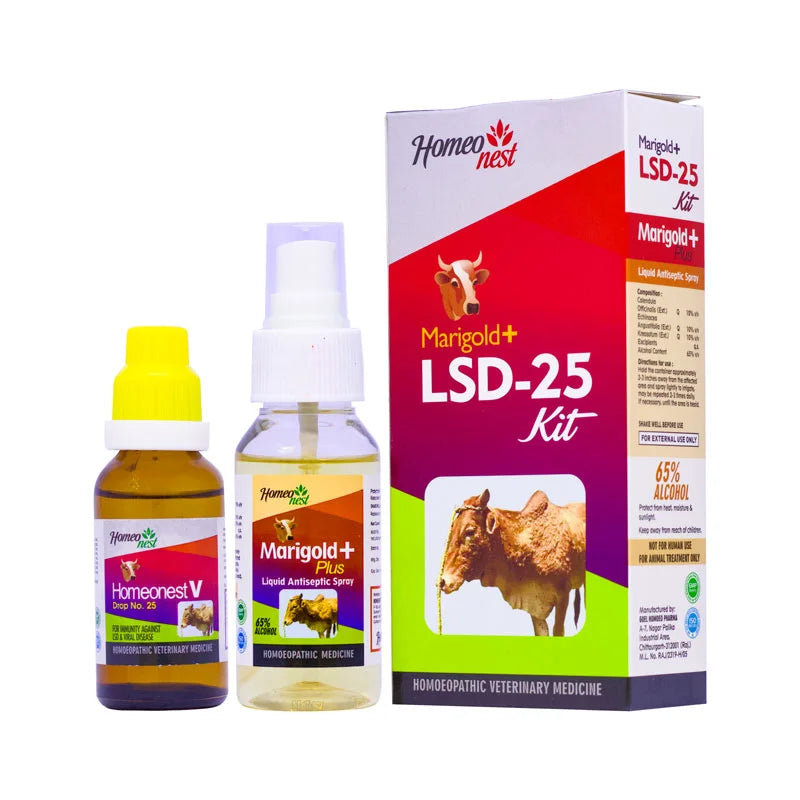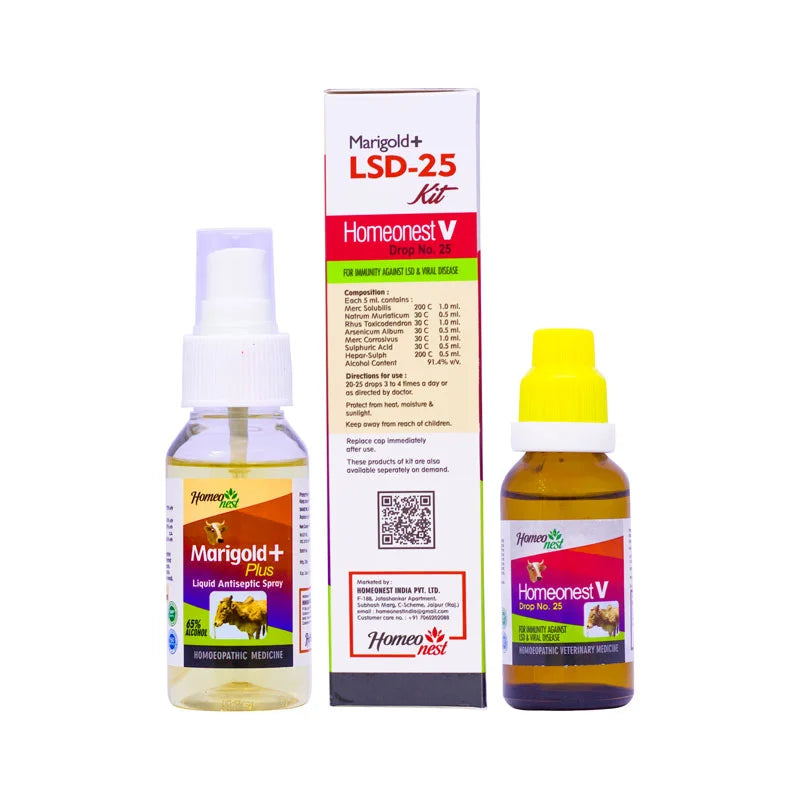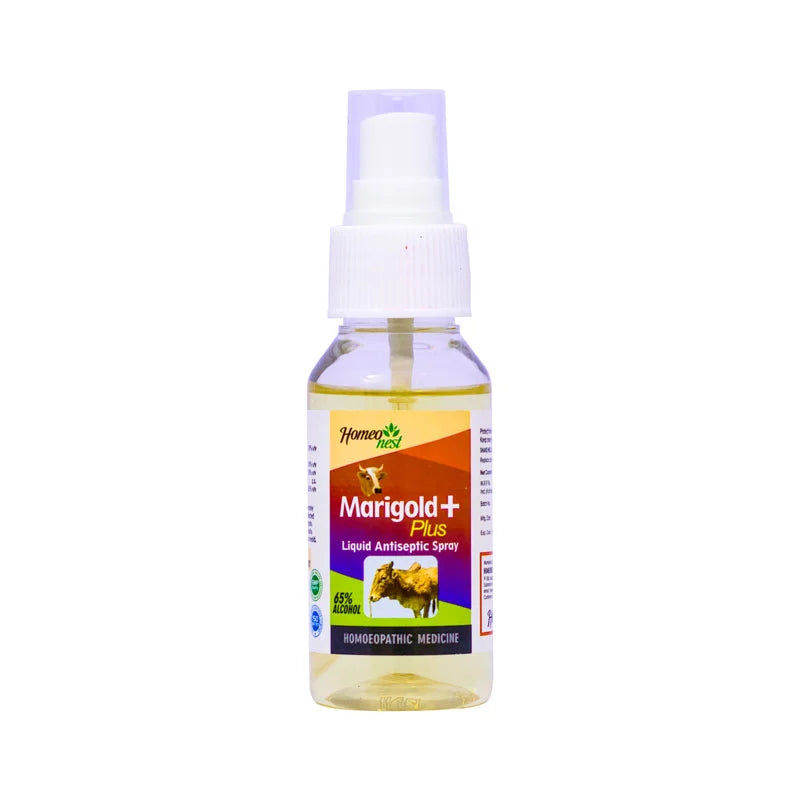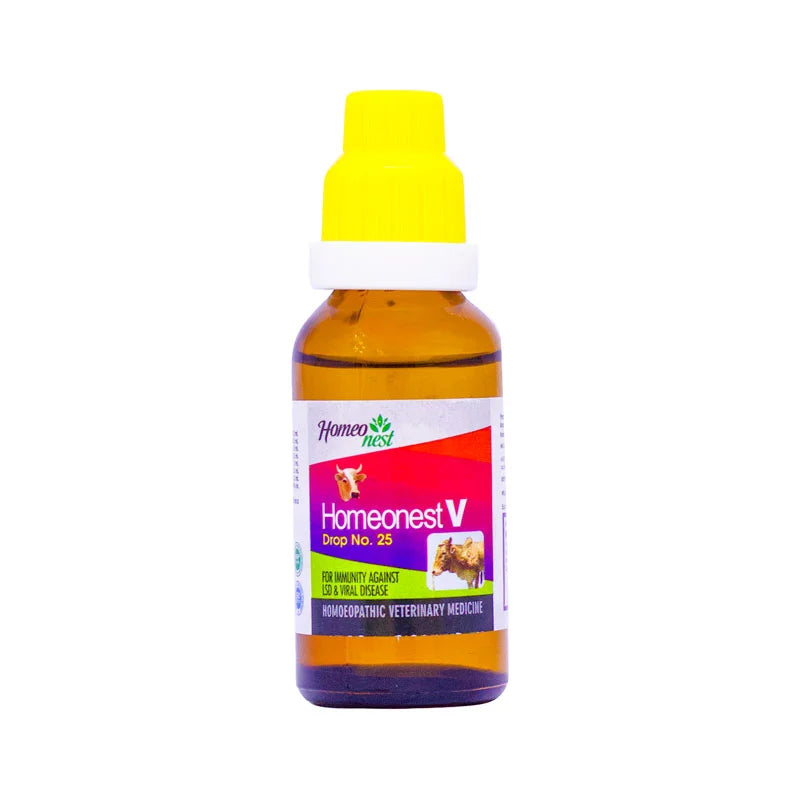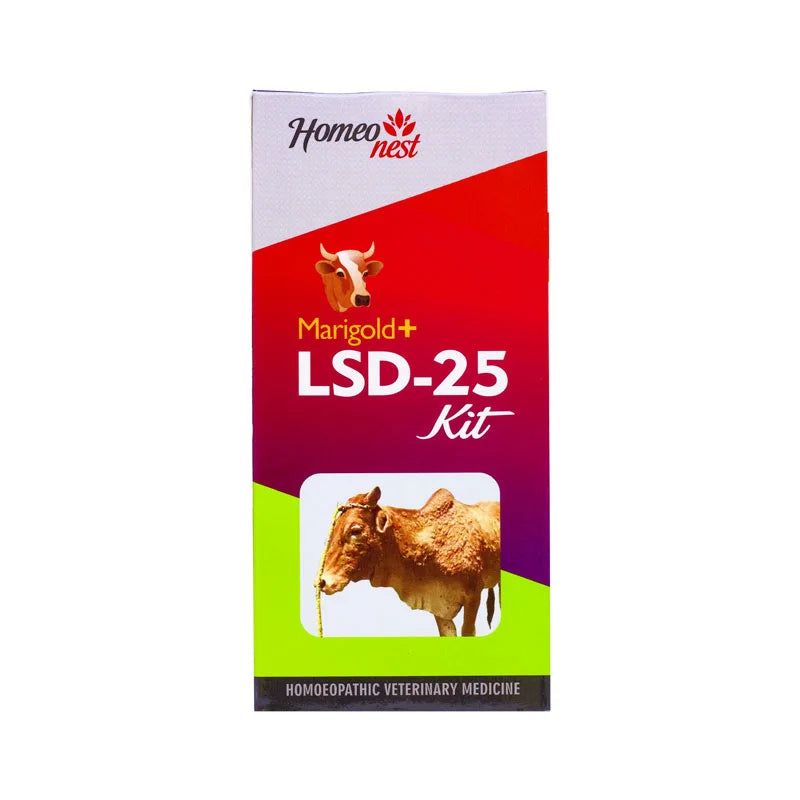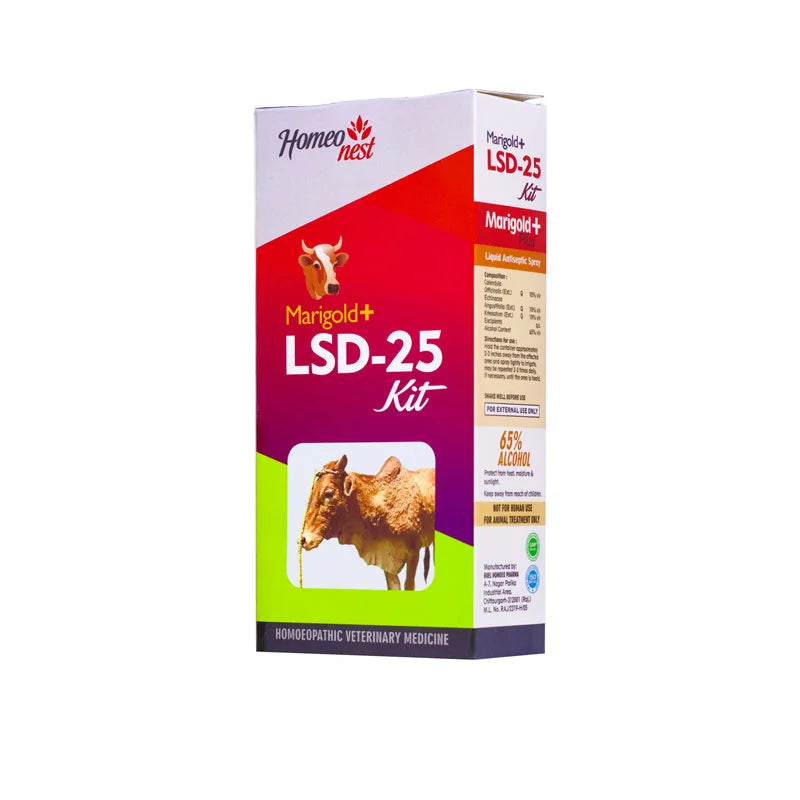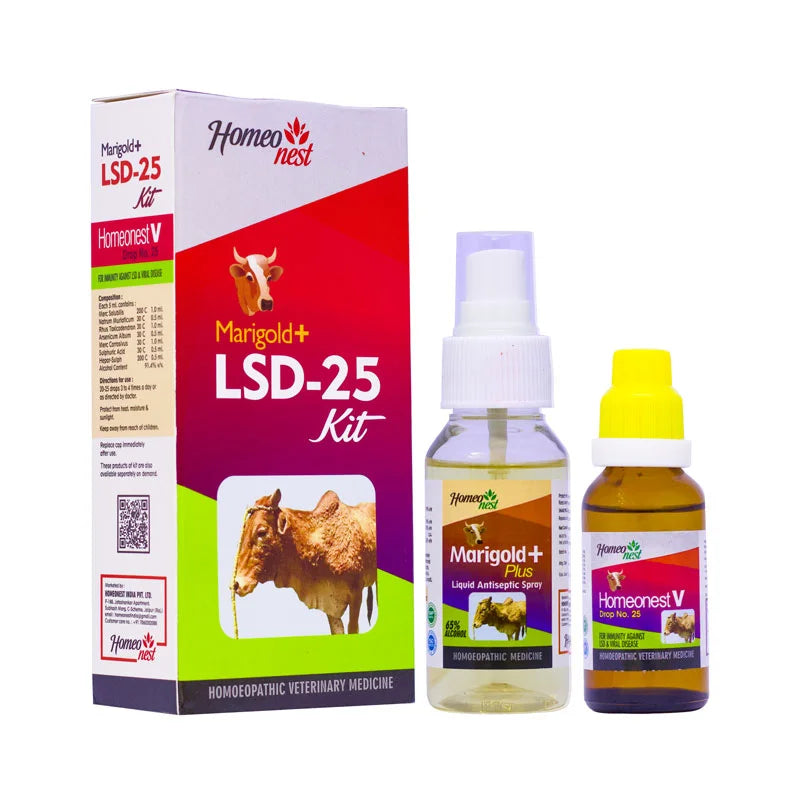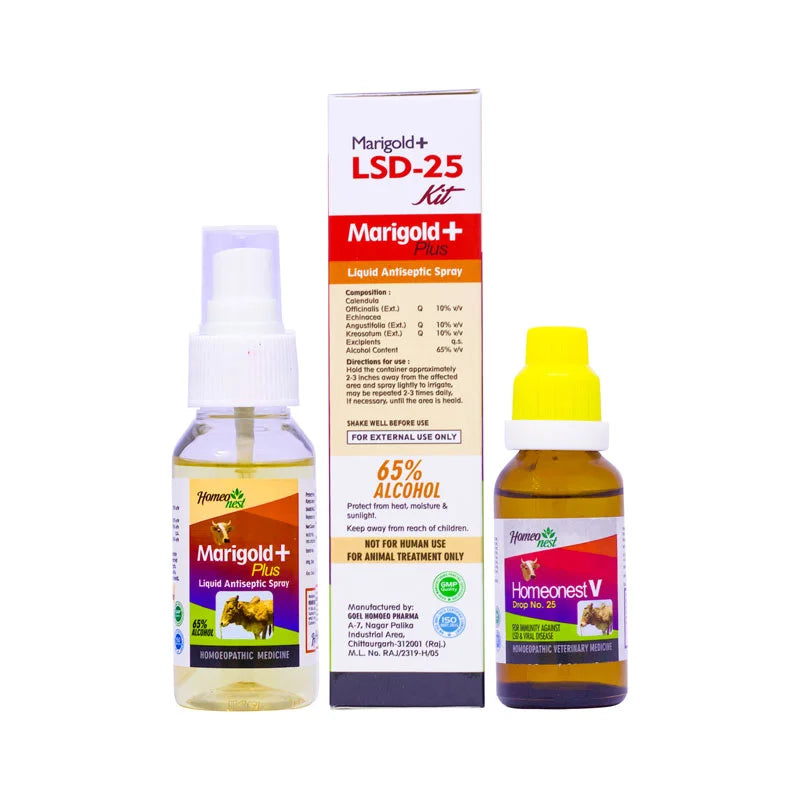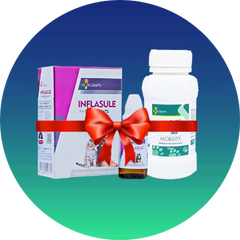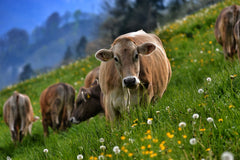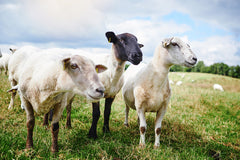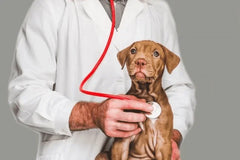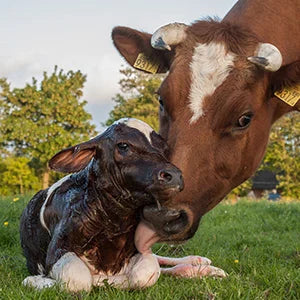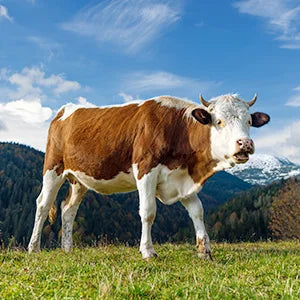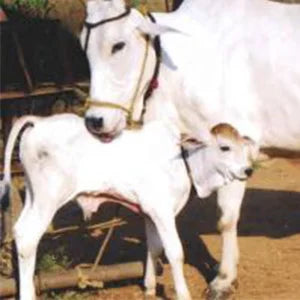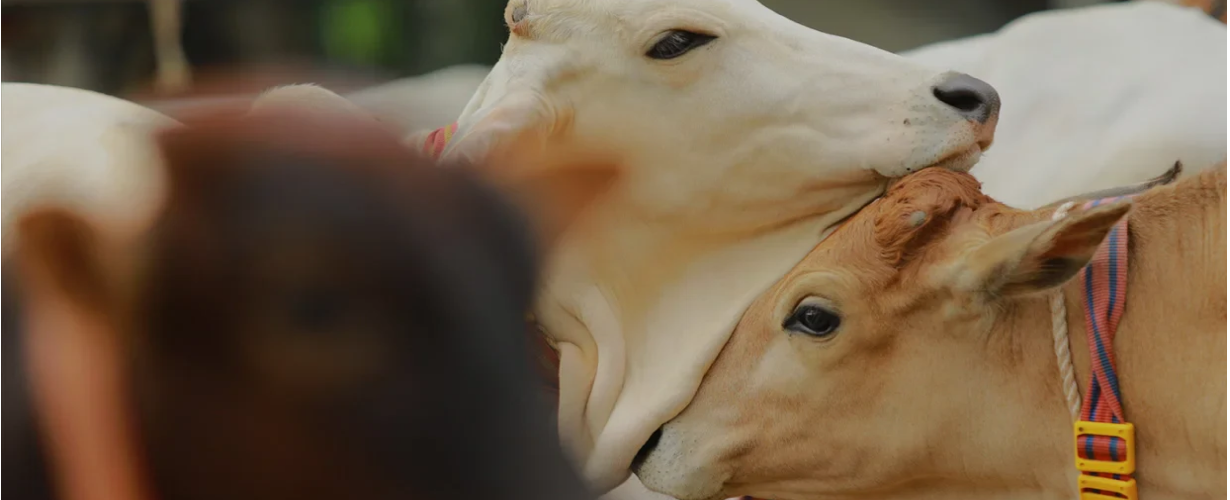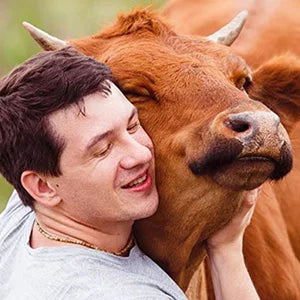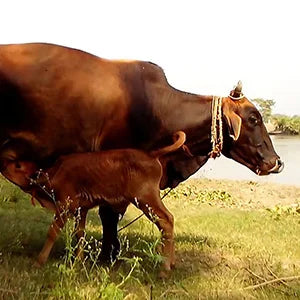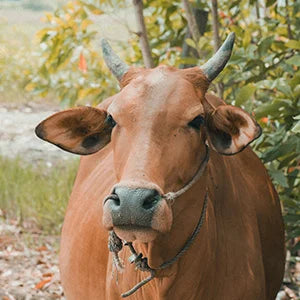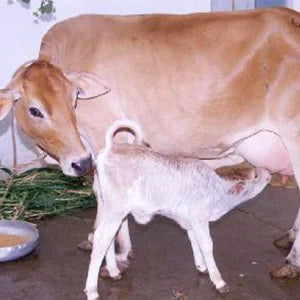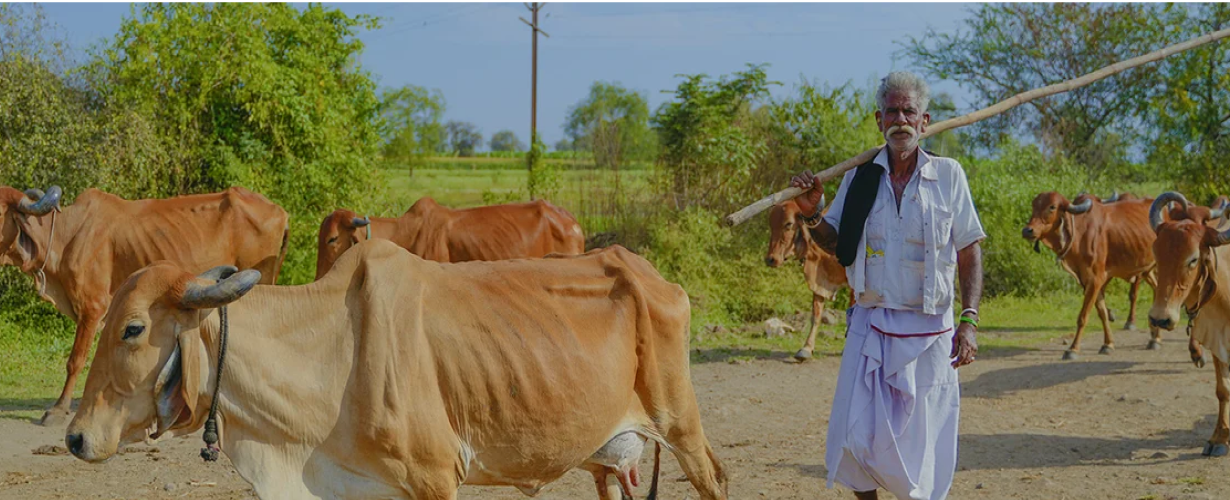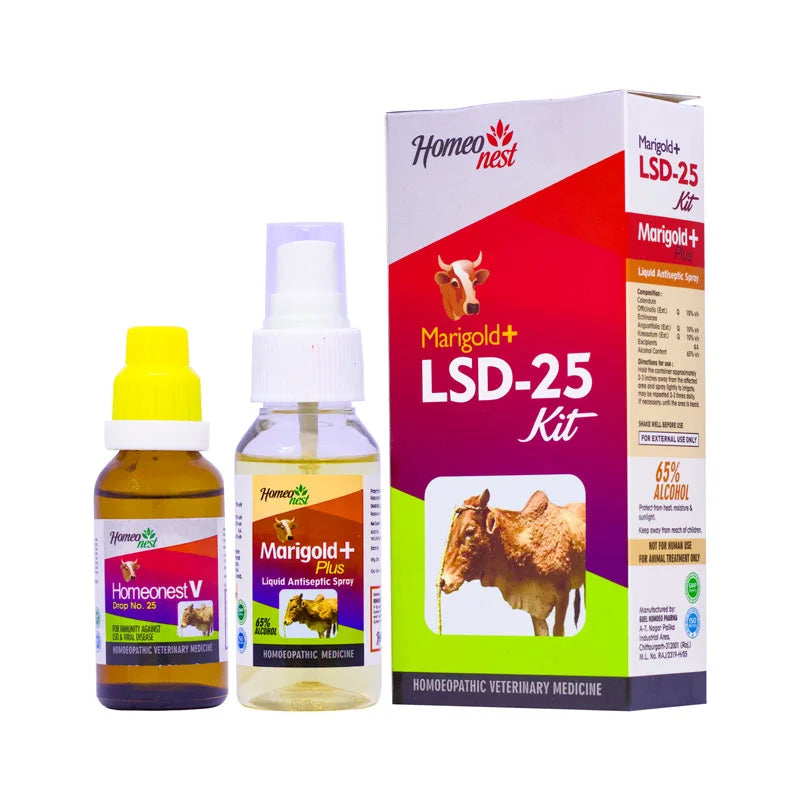Lumpy Skin Disease (LSD) in cattle causes raised nodules on the skin, affecting cows and buffaloes. Spread by insect bites, this viral infection can lead to fever, discomfort, and reduced milk production.
Common causes of Lumpy skin disease in Cattle include:
-
LSD Virus
The primary cause is the LSD virus, a member of the Capripoxvirus genus. Exposure to this virus through infected animals or contaminated materials contributes significantly to the disease's transmission.
-
Insect Vectors
Transmission occurs mainly through biting insects like mosquitoes and ticks, which act as vectors carrying and transmitting the LSD virus from infected to healthy cattle.
-
Lack of Vaccination
Inadequate or lack of vaccination against the LSD virus leaves cattle vulnerable to infection. Proper vaccination programs are essential to prevent the spread of the disease within herds.
-
Environmental Factors
Factors such as poor hygiene, overcrowding, and close contact between infected and susceptible animals within the cattle environment can facilitate the spread of the LSD virus among the herd.
Tips for Prevention of lumpy skin disease problem in Cattle
Preventing Lumpy Skin Disease in cattle involves a multi-pronged approach. Vaccination against the LSD virus is crucial, alongside strict control measures targeting insect vectors like mosquitoes. Implementing strong biosecurity practices, maintaining clean environments, and promptly isolating suspected cases can significantly reduce the risk of disease spread within cattle herds. Regular monitoring for early detection and swift action against potential outbreaks are key in safeguarding the health of the herd.
Symptoms of lumpy skin disease in Cattle
-
Skin Nodules
Firm, round nodules or lumps on the skin, particularly around the head, neck, and sometimes extending to other body parts.
-
Generalized Lumps
Nodules can also appear on the udder, teats, and mucous membranes of the mouth, nose, and eyes.
-
Fever
Infected cattle might experience a rise in body temperature.
-
Reduced Milk Production
The disease often leads to a decrease in milk yield.
-
Discomfort
Animals might exhibit signs of general discomfort or distress.
Trusted by Veterinarians
“As a veterinarian, I am thrilled to endorse Dr. Goel Vet Pharma’s homeopathic products for our furry friends. Their commitment to advancing homeopathic veterinary medicine is evident in the exceptional quality of their products. The innovative solutions they provide have significantly enhanced our ability to care for our animal patients, ensuring optimal health outcomes. I highly recommend Dr. Goel Vet Pharma’s products to pet parents for their unwavering dedication to the well-being of pet animals and the invaluable support they offer to the veterinary community.”
– Dr. Sakshi Sharma (B.V.sc. & A.H. M.V.Sc , NET)
Treat your Cattle from lumpy skin problem with Dr.Goel’sLSD-25 kit
Homeopathic Treatment of Lumpy Skin Disease (LSD) in cattle with oral medicine for enhancing internal Immunity and Healing Spray for treating external wounds. Homeonest Marigold + LSD-25 Kit contains two medicines namely Homeonest V Drops No. 25 for oral administration and Marigold + plus Liquid Antiseptic Spray for External use on skin lesions. Marigold+ LSD-25 Kit is a unique homeopathic formulation for lumpy skin disease in cattle.
